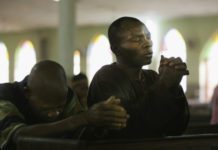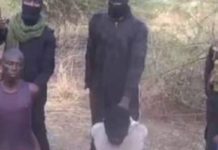By BosNewsLife Africa Service

RABAT, MOROCCO (BosNewsLife)– Western Christians who ran an orphanage in Morocco until they were deported on charges of “proselytism” were awaiting Monday, June 3, whether they would be able to return amid uncertainty over a court ruling.
Village of Hope (VoH) co-director Herman Boonstra confirmed to BosNewsLife that the Administrative Court of Rabat last month delivered a verbal ruling in favor of the Moroccan government, but that no “written verdict” had been received.
However the Dutchman pledged that, if confirmed, the VoH is speaking with its lawyers to take it to Supreme Court level if necessary.
In May 2010, the Christians caring for 33 Moroccan orphans at VoH in the town of Ain Leuh, some 100 kilometers (62 miles) south of the country’s city of Fez, were ordered to leave immediately.
WELFARE CHILDREN
VoH’s expelled foster parents said in a declaration, seen by BosNewsLife, that they were concerned about the welfare of the children they were forced to leave behind. Among them was an infant named Simo, who had been diagnosed with severe cerebral palsy, a movement disorder marked by involuntary muscle contractions, and related complications.
There were also emotional scenes at the time, as children were forced to say farewell to those who they came to know as their parents, according to Christians familiar with the situation.
Morocco’s Communications Minister Khalid Naciri defended the decisionm saying the Christians had violated the Islamic country’s religious traditions and legislation banning “proselytizing” the word used for evangelism.
Christians have denied the charges, saying they always respected the Islamic values of the country.
WIDER CONCERNS
VoH’s new legal challenges come amid wider concerns about a revelations last month that an influential Islamic institute issued a fatwa demanding the death penalty for Muslims who renounce their religion.
The Supreme Ulema Council of Morocco (CSO), a body of Islamic scholars headed by King Mohammed VI, said that Muslims who reject their faith “should be condemned to death.” CSO is the only institution entitled to issue ‘fatwas’, or religious decrees, in Morocco.
While apostasy is illegal in many Muslim countries and punishable by death in Saudi Arabia, Moroccan law so far does not directly prohibit it, according to experts familiar with the legislation.
Article 220 of Morocco’s Penal Code does state, however, that “attempting to undermine the faith of a Muslim or convert him to another religion” is punishable with six months to three years in prison.
DEATH SENTENCE?
It has not yet become clear when and if the reported fatwa, or religious decree, issuing a death sentence will become part of new legislation.
However the developments were expected to make it even more difficult for foreign Christian workers to be involved in social projects in the Islamic nation such as the VoH orphanage.
Additionally, rights groups have expressed concern that it will add to more pressure on the tiny Christian community of an estimated 22,000 devoted Christians.
At least one of them, 49-year-old Jamaa Ait Bakrim, an outspoken Christian convert, was sentenced to 15 years imprisonment in 2005 for “proselytizing” and destroying “the goods of others” after burning two defunct utility poles located in front of his own business in south Morocco.
Advocacy group Open Doors has quoted activists and Moroccan Christians as saying that the severity of his sentence for a “misdemeanor” underscores Morocco’s attempt him behind bars as long as possible “because he persistently spoke about his faith.”
(BosNewsLife, the first truly independent news agency covering persecuted Christians, is ‘Breaking the News for Compassionate Professionals’ since 2004).
Help BosNewsLife to be the voice of the voiceless. Click here for a subscription.








